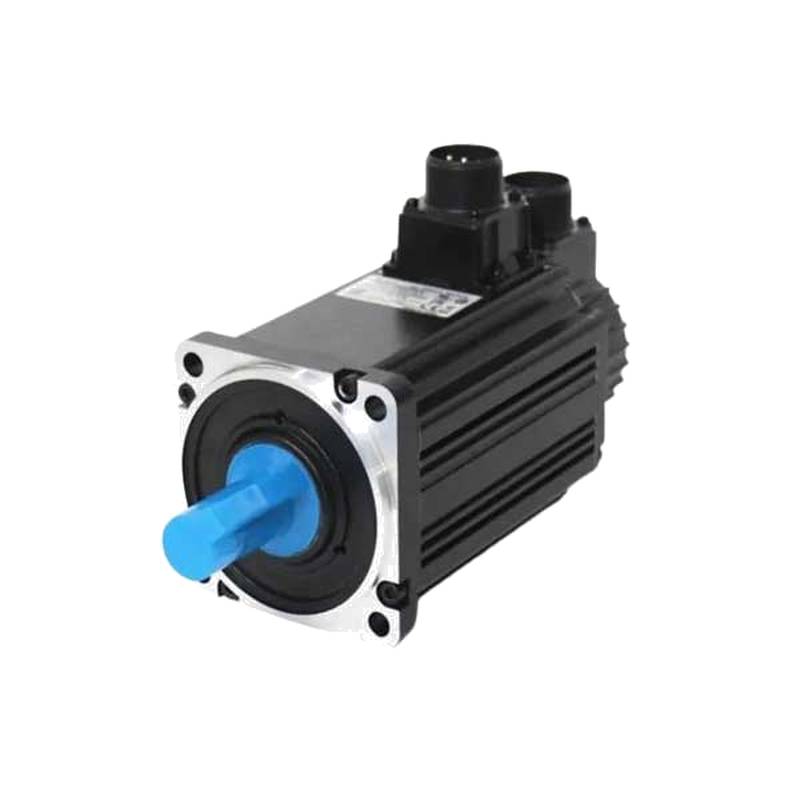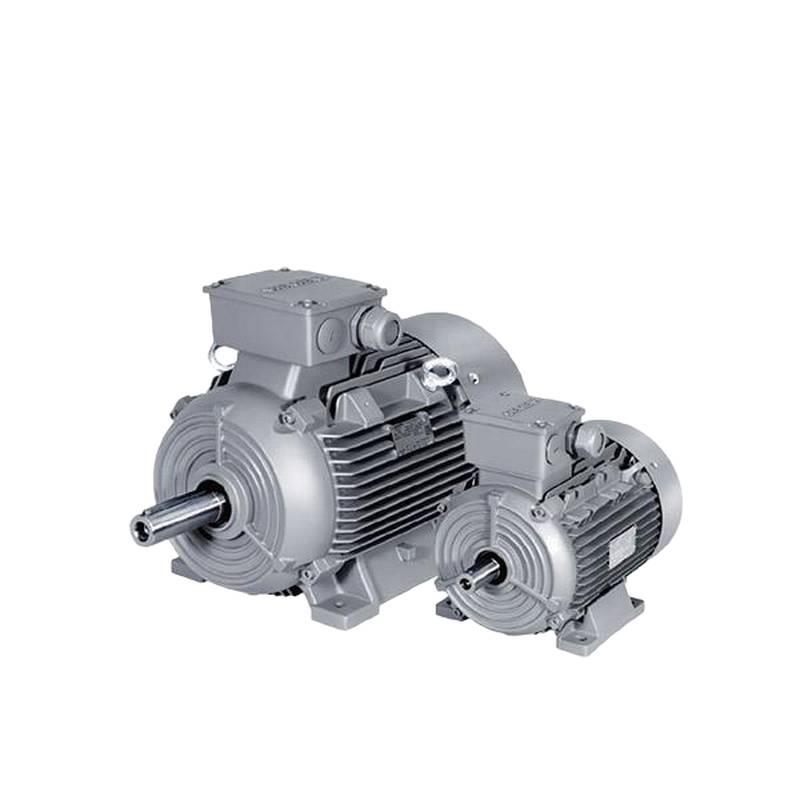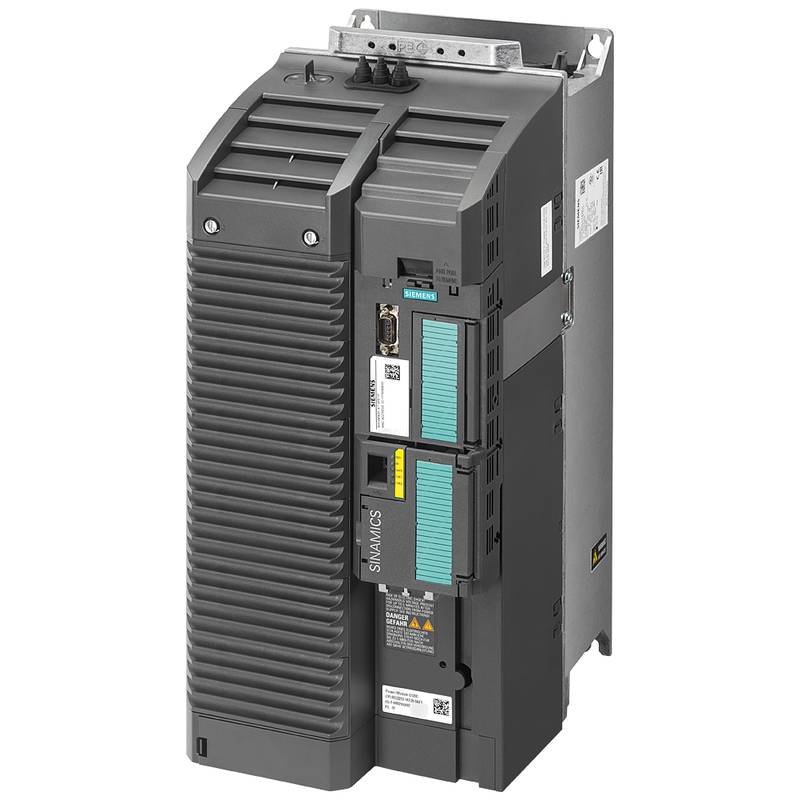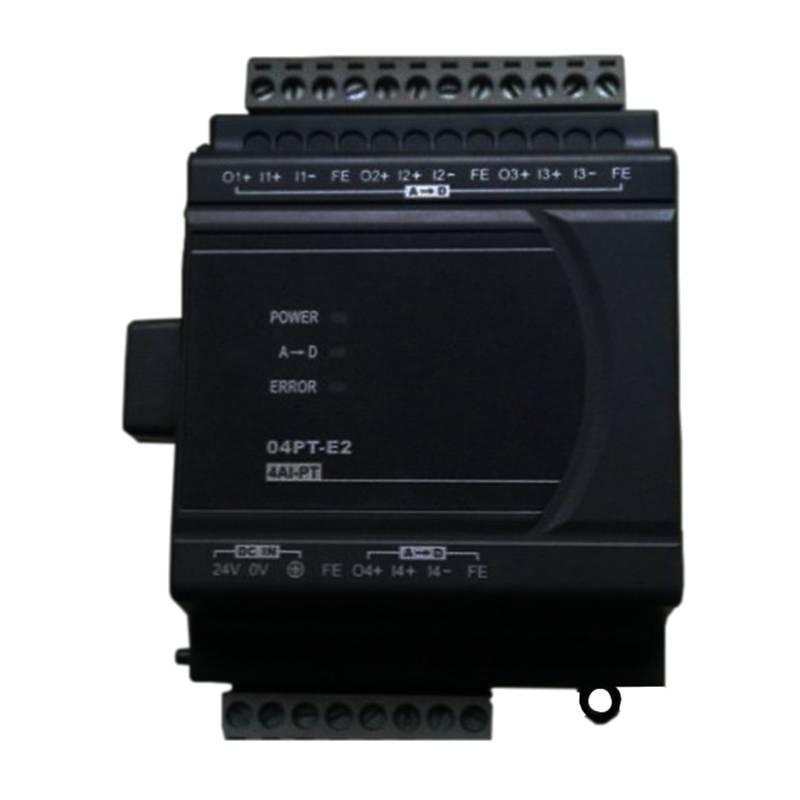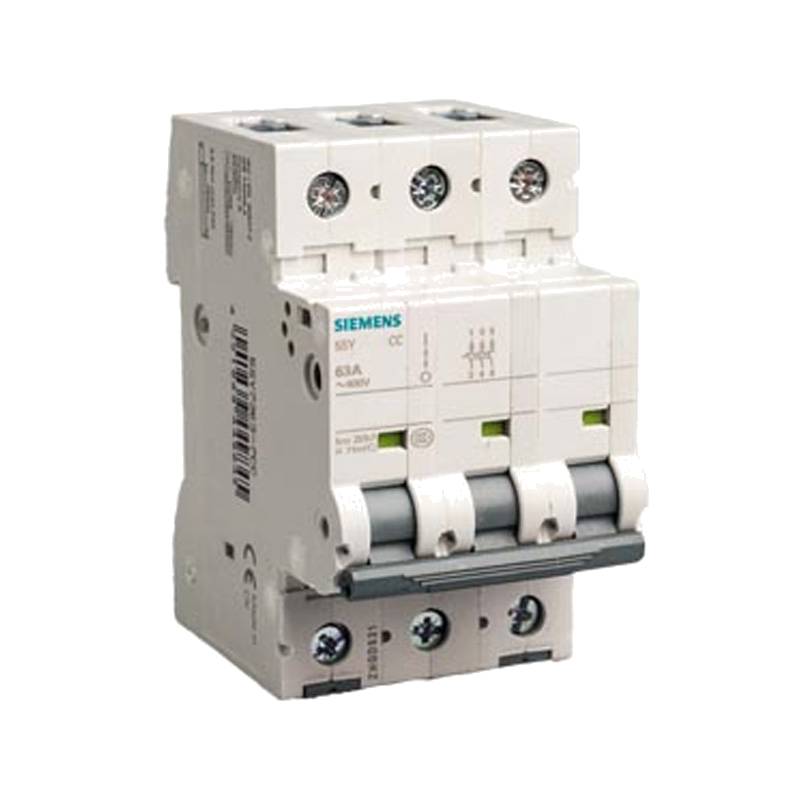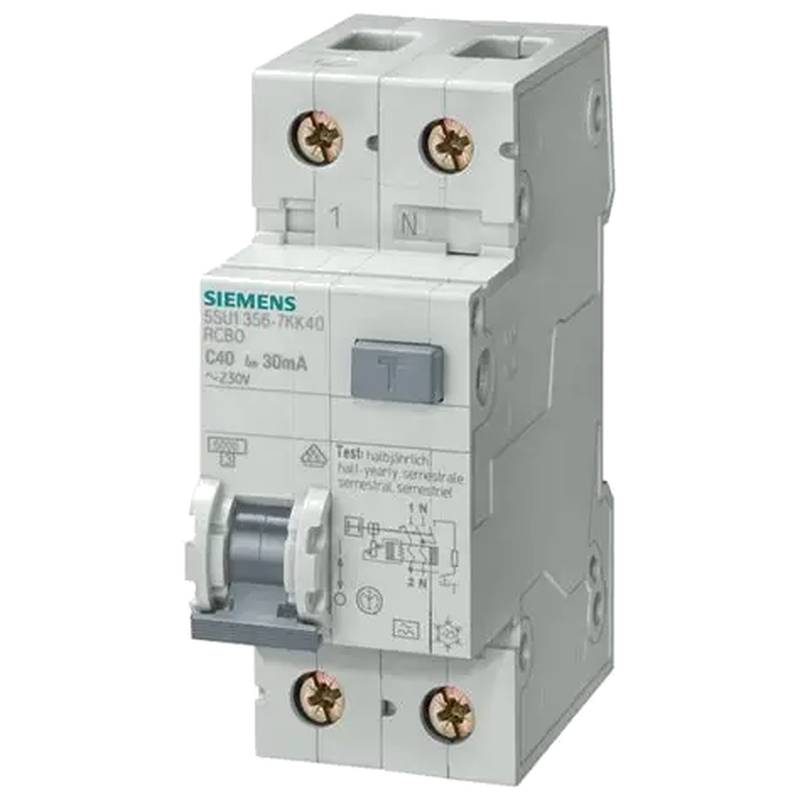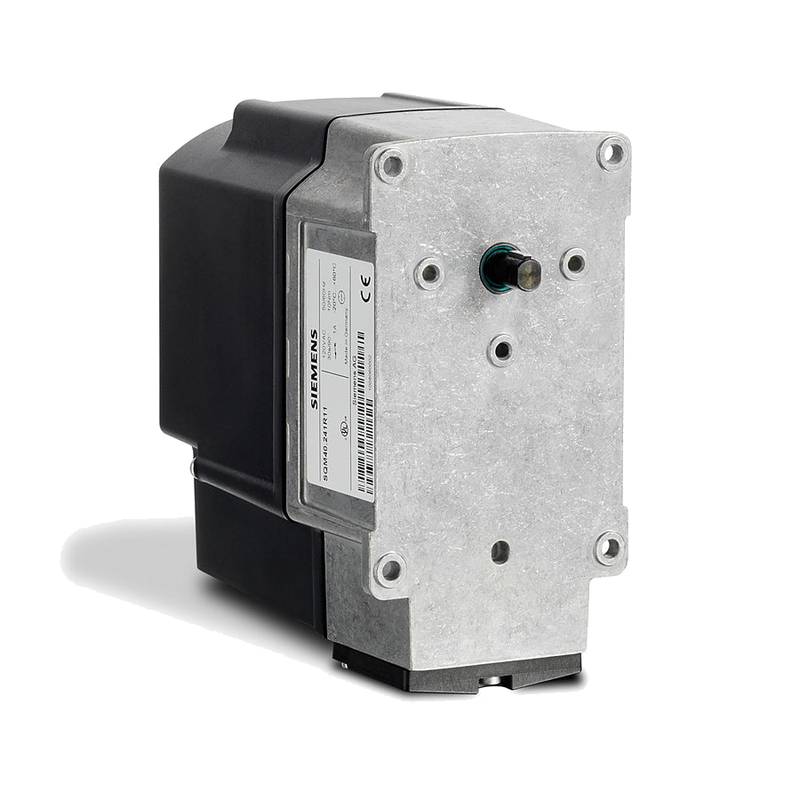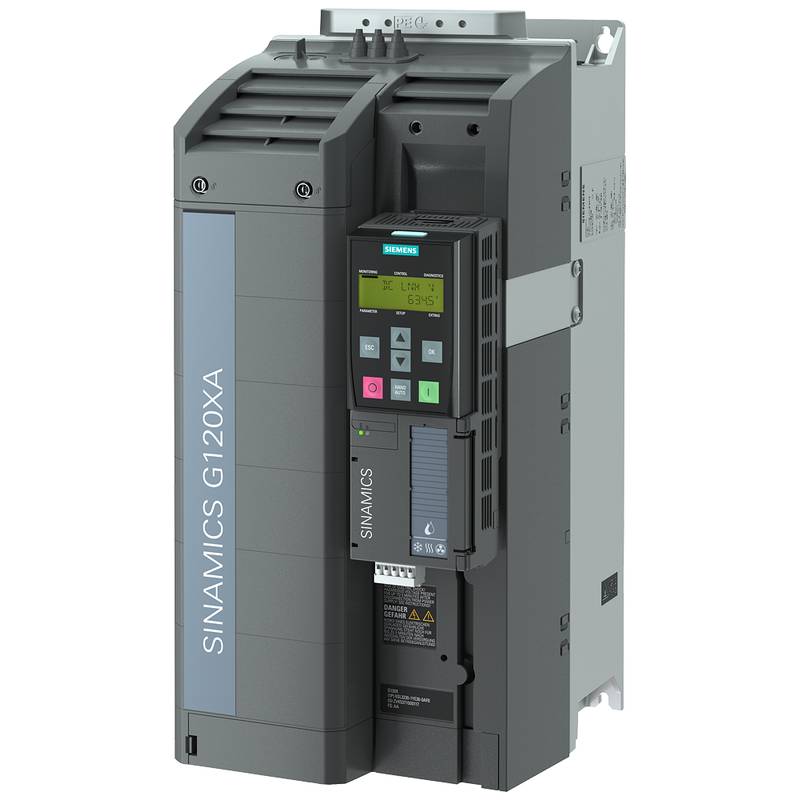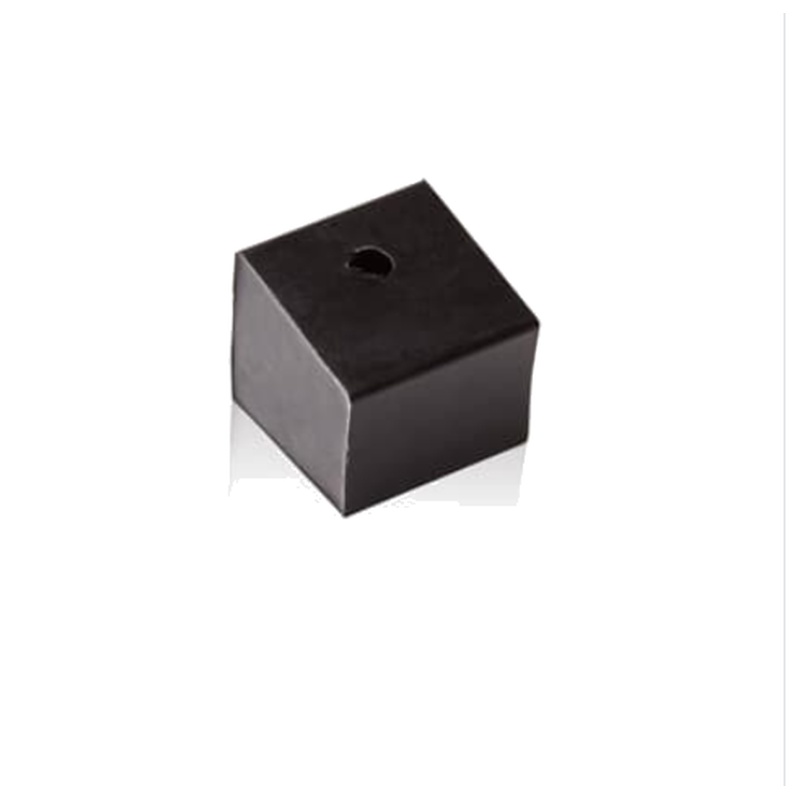
The Delta ECM-B3M-E21820RS1 B3 Medium Inertia Servo Motor represents a significant advancement in motion control technology, designed for demanding industrial applications requiring precision, speed, and reliability. This motor, part of Delta's latest generation of servo systems, is engineered for seamless integration with the ASDA-B3 servo drive, offering optimized performance and efficiency for a wide range of automation tasks. Key advantages include its medium inertia design, which balances responsiveness with stability, making it suitable for general mechanical equipment, and its high-resolution 24-bit encoder, ensuring exceptional positional accuracy. With a rated power of 2 kW and a rated torque of 9.55 N-m, the ECM-B3M-E21820RS1 is built to deliver robust performance in dynamic environments.
Product Specifications
| Parameter | Value |
| :----------------- | :--------------------- |
| Model | ECM-B3M-E21820RS1 |
| Series | B3 Medium Inertia |
| Rated Power | 2 kW |
| Rated Torque | 9.55 N-m |
| Drive Resolution | 24-Bit |
| Brake | None |
| Compatibility | ASDA-B3 Servo Drive |
| Voltage | 220 VAC |
| Output Current | 13.4 Arms |
| Motor Type | Medium Inertia |
Core Features & Market Positioning
The Delta ECM-B3M-E21820RS1 stands out in the competitive servo motor market due to its balanced medium inertia design, offering a versatile solution for applications that demand both quick response and the ability to handle moderate external forces or load variations. Its compatibility with the ASDA-B3 servo drive platform signifies a commitment to a cohesive and high-performance motion control ecosystem. The 24-bit encoder provides superior resolution, translating into enhanced precision and smoother operation, which is critical for industries prioritizing accuracy. Delta's B3 series motors are positioned as a reliable upgrade path for existing automation systems, enhancing machining efficiency and overall operational output value.
Key Application Scenarios
The inherent characteristics of the Delta ECM-B3M-E21820RS1 make it ideal for a broad spectrum of industrial automation scenarios. Its medium inertia is particularly well-suited for general mechanical equipment where consistent torque and speed are paramount. Typical applications include, but are not limited to, automated assembly lines, packaging machinery, material handling systems, and machine tools where precise, repeatable movements are essential. Furthermore, its compatibility with Delta's advanced servo drives allows for integration into sophisticated robotic systems and high-precision positioning tasks within the electronics and semiconductor manufacturing sectors.
Practical System Integration Guidance
Integrating the Delta ECM-B3M-E21820RS1 into an industrial control system is facilitated by its design and compatibility with the ASDA-B3 servo drive. While specific wiring diagrams and detailed programming examples are beyond the scope of this overview, users can leverage the ASDA-B3 series' capabilities for both pulse train and analog voltage control. The EtherCAT communication protocol, supported by the ASDA-B3 series, significantly simplifies wiring for multi-axis systems and allows for the connection of remote I/O modules, reducing installation complexity and maintenance time. For initial setup and configuration, users should refer to the official Delta ASDA-B3 servo drive manuals, which provide comprehensive guidance on parameter settings, auto-tuning procedures, and diagnostic tools to ensure optimal performance.
Operation and Risk Mitigation
Safe and efficient operation of the Delta ECM-B3M-E21820RS1 servo motor relies on proper installation, configuration, and adherence to safety protocols. The ASDA-B3 servo drive platform often includes features like Safe Torque Off (STO), which provides a critical safety layer by preventing unexpected motor movements. While specific fault codes for the ECM-B3M-E21820RS1 are detailed in the ASDA-B3 drive's documentation, common troubleshooting for servo systems involves checking motor and encoder connections, verifying power supply stability, and ensuring that auto-tuning parameters are correctly set. Regular maintenance, including visual inspection of cabling and connectors, helps mitigate risks associated with wear and tear.
Scalability & Long-Term Value
The Delta ECM-B3M-E21820RS1, as part of the B3 series, offers considerable scalability and long-term value. Its compatibility with the ASDA-B3 servo drives, which are themselves backward compatible with previous ASDA-A2 and ASDA-A3 series models, ensures a smoother upgrade path and integration with existing Delta automation infrastructure. This approach allows businesses to incrementally enhance their automation capabilities without complete system overhauls. Furthermore, the increasing trend towards Industry 5.0 and IIoT integration means that robust, precisely controlled servo systems like the ECM-B3M-E21820RS1 are foundational for adopting advanced data analytics, predictive maintenance strategies, and smart manufacturing solutions.
Frequently Asked Questions (FAQs)
1. What are the primary benefits of the Delta ECM-B3M-E21820RS1 servo motor?
The ECM-B3M-E21820RS1 offers a balanced medium inertia for versatile applications. It provides high precision with its 24-bit encoder. The motor is designed for optimized performance with ASDA-B3 drives.
This servo motor enhances machining efficiency for industrial upgrades. Its stable and efficient operation is crucial for automated systems. The motor's design supports precise motion control functions.
It represents Delta's latest generation of servo technology. This ensures compatibility and advanced features for modern automation needs. The motor contributes to optimized production efficiency.
2. How does the medium inertia of the ECM-B3M-E21820RS1 compare to low or high inertia motors?
Medium inertia motors strike a balance between responsiveness and stability. They are ideal for general mechanical equipment and applications needing consistent performance.
Low inertia motors are best suited for high-speed positioning and rapid acceleration/deceleration tasks. High inertia motors excel in applications requiring speed stability or resistance to external forces.
The ECM-B3M-E21820RS1's medium inertia makes it a versatile choice for a wide array of industrial machinery. It avoids the extreme characteristics of low or high inertia options.
3. What are the key technical specifications of the Delta ECM-B3M-E21820RS1?
This motor boasts a 2 kW rated power and 9.55 N-m rated torque. It features a 24-bit encoder for high-resolution feedback.
The ECM-B3M-E21820RS1 operates on a 220 VAC power supply with a 13.4 Arms output current. It is a medium inertia motor without a brake.
It is specifically designed for compatibility with the Delta ASDA-B3 servo drive system. This ensures optimal integration and performance.
4. What types of applications is the ECM-B3M-E21820RS1 servo motor best suited for?
Its medium inertia makes it suitable for general mechanical equipment applications. This includes automated production lines and material handling systems.
It is also effective in scenarios requiring precise and repeatable movements. Examples include packaging machinery and certain types of machine tools.
The motor's high precision is beneficial in electronics and semiconductor manufacturing. It supports demanding automation tasks in these industries.
5. How does the 24-bit encoder contribute to the motor's performance?
A 24-bit encoder provides exceptional positional accuracy and resolution. This allows for very fine control over motor movements.
This high resolution translates into smoother operation and reduced vibration. It is critical for applications demanding high precision and repeatability.
The enhanced feedback from the 24-bit encoder helps in minimizing errors during operation. It supports advanced control algorithms for optimal performance.
6. What is the role of the ASDA-B3 servo drive in conjunction with the ECM-B3M-E21820RS1?
The ASDA-B3 servo drive is designed to work seamlessly with the ECM-B3M-E21820RS1 motor. It provides the control signals and power required for operation.
This pairing enables optimized performance, stability, and efficiency. The drive manages motion control functions based on application requirements.
The ASDA-B3 drive supports advanced features like auto-tuning and communication protocols like EtherCAT. This simplifies system integration and enhances control capabilities.
7. Does the ECM-B3M-E21820RS1 servo motor come with a brake?
No, the specific model ECM-B3M-E21820RS1 is listed as being without a brake. Delta offers various configurations for their servo motors.
Users requiring braking functionality for holding loads when power is off should select a model with a brake. Check the full product series for options with brakes.
For applications where holding torque is necessary, a motor with an integrated brake is essential for safety and system integrity. Always confirm the exact model number for brake inclusion.
8. What are some common integration considerations for Delta B3 series servo motors?
Ensure proper wiring between the motor and the ASDA-B3 servo drive. Refer to the drive's manual for correct connections and pinouts.
Utilize the auto-tuning function of the ASDA-B3 drive for optimal motor performance. This calibrates the drive parameters to the specific motor characteristics.
Consider communication protocols like EtherCAT for multi-axis systems. This simplifies wiring and enhances data transfer speeds.
9. Can the Delta ECM-B3M-E21820RS1 be used in IIoT or Industry 5.0 applications?
Yes, the B3 series servo motors are foundational for Industry 5.0 initiatives. They provide the precise control needed for intelligent manufacturing.
Their integration with ASDA-B3 drives supports data analytics and predictive maintenance. This aligns with the goals of smart, human-centric manufacturing.
These motors enable advanced automation that is crucial for future industrial growth. They are designed for robust performance in connected systems.
10. Where can I find detailed documentation or manuals for the ECM-B3M-E21820RS1 and ASDA-B3 series?
Official Delta Automation websites are the primary source for product documentation. Look for the "Download Center" or "Support" sections.
You can typically find product datasheets, user manuals, and application notes. These resources provide in-depth technical specifications and integration guidance.
For specific inquiries or assistance, contacting Delta's technical support or authorized distributors is recommended. They can provide tailored information and help with complex issues.














